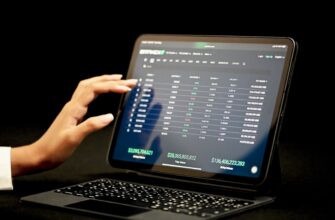- Introduction: Bitcoin Adoption in Germany
- Step-by-Step: How to Buy Bitcoin in Germany
- 1. Choose a Secure Bitcoin Wallet
- 2. Select a Regulated German Exchange
- 3. Complete Identity Verification (KYC)
- 4. Deposit Euros via SEPA Transfer
- 5. Execute Your Bitcoin Purchase
- 6. Transfer Bitcoin to Your Private Wallet
- Top Bitcoin Exchanges in Germany
- Payment Methods Compared
- Securing Your Bitcoin Investment
- Legal & Tax Considerations
- Bitcoin in Germany: FAQ Section
- Is Bitcoin legal in Germany?
- What’s the minimum investment?
- How long do SEPA transfers take?
- Are there anonymous options?
- How are Bitcoin profits taxed?
- Can I buy Bitcoin at German banks?
- Conclusion
Introduction: Bitcoin Adoption in Germany
Germany stands at the forefront of cryptocurrency adoption in Europe, with Bitcoin recognized as “private money” by regulators. Whether you’re investing for long-term growth or exploring blockchain technology, buying Bitcoin in Germany is straightforward with proper guidance. This comprehensive 900-word guide covers exchanges, payment methods, security practices, and legal considerations tailored for German residents.
Step-by-Step: How to Buy Bitcoin in Germany
1. Choose a Secure Bitcoin Wallet
- Hardware Wallets (e.g., Ledger, Trezor): Offline storage for maximum security
- Mobile Wallets (e.g., Trust Wallet): Convenient for smaller amounts
- Exchange Wallets: Temporary storage during purchases (not recommended long-term)
2. Select a Regulated German Exchange
Prioritize platforms registered with BaFin (Federal Financial Supervisory Authority).
3. Complete Identity Verification (KYC)
- Submit ID card or passport
- Provide proof of address (e.g., utility bill)
- Process typically takes 1-3 business days
4. Deposit Euros via SEPA Transfer
Most cost-effective method with 0-1% fees. Funds arrive in 1-3 business days.
5. Execute Your Bitcoin Purchase
- Market Order: Buy instantly at current price
- Limit Order: Set your desired price
6. Transfer Bitcoin to Your Private Wallet
Withdraw coins from the exchange to your personal wallet address for enhanced security.
Top Bitcoin Exchanges in Germany
- Bitpanda: User-friendly interface, 30+ payment methods, BaFin-licensed
- Bison (Börse Stuttgart): Zero trading fees, ideal for beginners
- Kraken: Low fees (0.16-0.26%), advanced trading features
- Coinbase: High liquidity, insured custodial wallets
- eToro: Social trading features, supports copy trading
Payment Methods Compared
- SEPA Bank Transfer: Free deposits, 1-3 day processing
- Credit/Debit Cards: Instant purchase, 3-5% fees
- PayPal: Available on select platforms, higher premiums
- Sofort/Giropay: Instant bank transfers, 1-2% fees
Securing Your Bitcoin Investment
Hot Wallets: Convenient for frequent access (e.g., Exodus, Electrum).
Cold Storage: Essential for large holdings – use hardware wallets disconnected from the internet.
Security Best Practices: Enable 2FA, never share recovery phrases, verify addresses before transactions.
Legal & Tax Considerations
Bitcoin is fully legal in Germany under BaFin supervision. Key tax rules:
- Holdings >1 year are tax-free
- Sales within 1 year subject to capital gains tax if profits exceed €600 annually
- Business transactions taxed as commercial income
Always consult a Steuerberater (tax advisor) for personal guidance.
Bitcoin in Germany: FAQ Section
Is Bitcoin legal in Germany?
Yes. Germany recognizes Bitcoin as a legal financial instrument regulated by BaFin since 2020.
What’s the minimum investment?
Most exchanges allow purchases from €1-€25. Bitpanda supports €1 minimum buys.
How long do SEPA transfers take?
Typically 1-3 business days. Some platforms like Bison offer instant purchases after first deposit.
Are there anonymous options?
No. All regulated exchanges require full KYC verification under German AML laws. Peer-to-peer platforms offer partial privacy but higher risks.
How are Bitcoin profits taxed?
Tax-free if held over 12 months. Short-term gains under €600/year are also exempt. Beyond that, capital gains tax applies at your personal income tax rate.
Can I buy Bitcoin at German banks?
Most traditional banks don’t offer direct purchases, but several neobanks like N26 integrate with crypto exchanges.
Conclusion
Buying Bitcoin in Germany involves selecting a BaFin-regulated exchange, completing KYC verification, funding your account via SEPA, and transferring coins to a private wallet. With favorable tax laws and robust consumer protections, Germany offers one of Europe’s safest environments for cryptocurrency investment. Always prioritize security through hardware wallets and stay informed about regulatory updates from BaFin.








